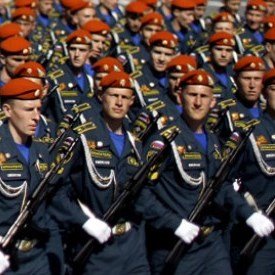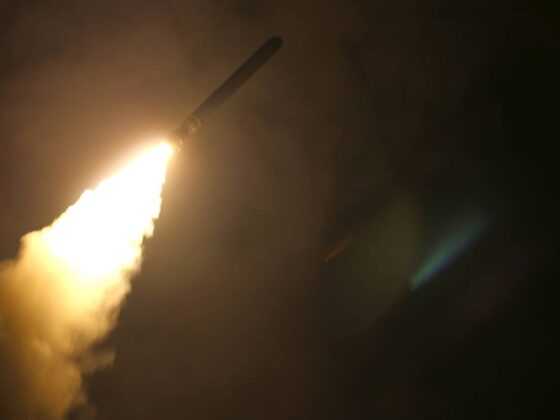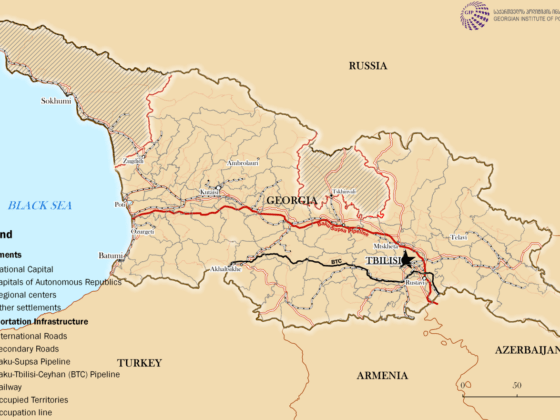(RMR) I wrote this up quickly on Saturday for friends, and it seemed to get a positive reaction, so I decided to expand a bit and send it out to the wider world…
The United States (and the Trump administration) came out well. The would saw a measured response that showed US willingness to follow up words with actions, while also showing that Trump’s rash tweets do not equal rash actions (at least vis-a-vis Russia). Jim Mattis in particular showed that he is the chief voice of reason and restraining figure in the administration.
At the same time, the strikes accomplished little in practical terms. Syria’s ability to make and use chemical weapons was largely unaffected, because what they are using now is chlorine gas, rather than the sarin that was made in its chemical weapons program prior to 2013. Chlorine gas is much easier to make and is almost certainly made at sites other than the ones that were targeted (and even if it was being made there, it can relatively easily be made elsewhere).
For this reason, Syria (and Assad) also came out well. For the price of a few destroyed buildings they got to take over Douma and wipe out the last rebel controlled zone near Damascus. The main question is the extent to which the strikes will deter Assad from using chemical weapons in the future. My guess is that there will be some short-term deterrent effect (because of worries that the next strike will be more damaging), but little long-term effect — because of beliefs that US memories fade and because of cost-benefit calculations that show that use of chemical weapons in certain situations is highly effective in demoralizing enemies and causing them to surrender (see Douma) while also forcing somewhat reluctant allies such as Russia to publicly support Assad.
Russia is a (minor) loser for this round — Russian officials made big loud statements early on, but then clearly got scared of being painted into a corner and started backing off a few days ago. In the end, the situation showed that Russia cannot deter the United States from hitting an ally, but it can limit the extent of the strike and the choice of targets. Also, Syria’s (older) Russian-made air defenses were completely ineffective, while potentially more effective modern air defenses under Russian control were not activated. In other words, the US strikes clearly showed both the extent and the limits of Russian influence in the region. Russian leaders clearly care about this image problem, thus the somewhat ridiculous statements about Syrian air defenses successfully intercepting US missiles supposedly aimed at airfields that the US and its allies did not target.
The military balance in the region is clearly revealed. In a few days, the US and its allies were able to gather a set of forces that are much stronger than what Russia could bring to bear in the region. This is not the early 1970s, when much of the world believed that the Soviet Union could more or less match the maximum US presence in the Eastern Med (even if present-day Russian analysts are skeptical about the actual strength of Russian military forces in the region at the time). The Russian military (in terms of conventional forces) is stronger than it was a few years ago and is more than a match for any of its other adversaries, but it’s still far weaker than the US military.
Finally, the impact of the strike on US domestic politics is pretty certainly going to be short-term and very limited. Some of Trump’s isolationist allies on the far right were appalled and highly critical, but they will come back to the fold soon enough since they have no alternative to supporting Trump. What’s more, Democratic politicians’ critiques that the attack should not have been done without Congressional authorization are not likely to last long, because actually having that debate in Congress is not in their interest politically (which way to vote — to authorize Trump to use force or to allow other countries to carry out chemical weapons attacks with impunity?). Better to just carp from the sidelines on this issue and go back to the various scandals after a couple of days.
So, to sum up, the world avoided a big international crisis through a combination of US restraint, Russian desire to avoid escalation in a situation where it did not have escalation dominance, and good use of US-Russian deconfliction channels. The strike itself was not particularly effective at achieving its stated goals vis-a-vis Syria, but was good at signaling US intent and capabilities for the future (including the limits of that intent). The major problem that remains is that given what I described above, Assad is unlikely to have been deterred from future use of chemical weapons and therefore we may well be back in the same place again a few months or a year from now.
See the original post | Russian Military Reform (RMR) blog











